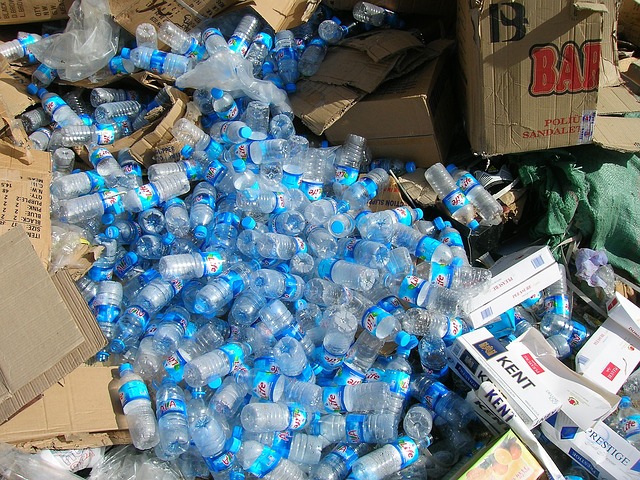Consumers believe retailers should do more to reduce the amount of plastic waste. Credit: Charly_7777
An independent study commissioned by compostable packaging company TIPA has found that nearly one in three UK consumers would
Market research company OnePoll, which conducted the research on behalf of TIPA found that 70% of consumers would be more likely to shop with a brand that offers compostable packing.
Meanwhile, 39% of consumers expect retailers to make more use of compostable packaging, with 18% believing it is fair to expect brands to use compostable packaging in marketing messages.
Daphna Nissenbaum, CEO of TIPA, said: “Retailers are now recognising that shoppers are not only opposed to plastic waste in theory, they are very concerned about its large-scale polluting effect on the world’s lands and oceans.
“While a considered, wide-scale solution is needed by the industry to be effective, retailers should take note that consumers are holding them most accountable and are demanding more urgent action.
“Retailers can benefit by taking the right steps now and communicating clearly with consumers to avoid losing them to competitors who get there first.”
Consumers call on supermarkets to introduce plastic-free aisles
In addition, 39% of 2,000 surveyed UK consumers think retailers should have plastic-free aisles in every store with 29% believing every retail store should be completely plastic free.
However, when asked who is most responsible for reducing plastic waste, consumers cited themselves (78%). Other than themselves, 62% of consumers thought retailers were the most responsible, followed by the government on 50%.
Apart from plastic waste, consumers are also concerned about sustainability (41%), fair trade (33%) and healthier nutrition (30%).
Nissenbaum concluded: “The UK public’s knowledge is getting more informed with every story about plastic waste in the media.
“Next they will be actively looking for the most environmentally-friendly packaging options in stores and expecting this choice from retailers they shop with.”
The study comes at a time of increased consumer awareness towards plastic waste. Over the last year, consumers have grown increasingly concerned about the damage inflicted by plastic materials on marine life, highlighted by BBC’s series Blue Planet, which aired last year.
Plastic-free supermarkets
In February, TIPA created 100% compostable flexible packaging for Europe’s first plastic-free supermarket aisle in Ekoplaza supermarket in the Netherlands. The supermarket features more than 700 plastic-free products, including meat, rice, dairy, chocolate, cereals, yoghurt, snacks, fresh fruit and vegetables.
Meanwhile, at the beginning of November, supermarket Thorton’s Budgens became the first independent retailer in the UK to introduce extensive plastic-free zones in its shop. The plastic-free zones feature more than 1,700 products packaged in exclusively plastic free-materials. The products include fresh produce from meat and fish to bread, cheese, vegetables and fruit, as well as a range of packaged food and drink products.
Government’s response to plastic waste
At the end of October, UK Chancellor Philip Hammond confirmed the British government is to introduce a new tax on plastic packaging as it looks to step up efforts to tackle the amount of plastic waste.
The new budget plan makes few references to environmental issues, and the Chancellor said the Treasury would consult on plans to impose ‘a new tax on the manufacture and import of plastic packaging which contains less than 30% recycled plastic’.
According to Hammond, the move, alongside wider planned reforms of the Packaging Producer Responsibility Scheme would ‘transform the economics of sustainable packaging’.
He said: “Future revenues from the packaging tax and Packaging Producer Responsibility reforms will enable investment to address single-use plastics, waste and litter.”
In addition, the new budget includes £20m of new funding to boost plastics recycling, £10m for plastics R&D, and £10m to develop innovative approaches to boosting recycling and reducing litter.

